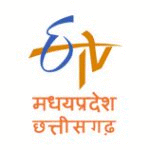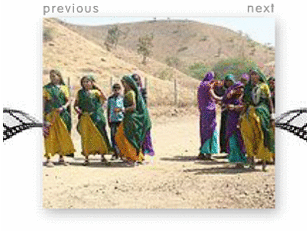LOK MANTHAN : A FUZZY VISION OF INDIA
Shashidhar . S. Kapur
The three day colloquium Lok Manthan organised in Bhopal from November 12 thru 14 was ostensibly aimed at coming up with a new Vision for India . To have a new paradigm for India for the next century perhaps even the millennium. It was jointly organised by Pragya Pravah , Bharat Bhavan and the Department of culture .
The curtain raiser featured Prof. Rakesh Sinha , Chandra Prakash Dwivedi and Anil Dave among others .Prof .Sinha said “ The most beautiful thing is Vichaar ( thought ) … we wish to be thought leaders of the world and not give in to the dominance of Political power or money power – since that was the reason for the decline of Roman Empire. Sankhya Darshan put reason as the highest virtue neraly 2000 yrs before Kant.” Continuing in the same vein he added “Two things have distorted the idea of India – Macaulay and Marx -both try to flatten the Indian diversity and produce a bunch of flatterers.”
“Just as there was colonisation , modernisation and post modernism; there has been anti- colonial ,post colonial and now decolonization… We need to have an intellectual renaissance which hasn’t happened in India… Lok Manthan may become the movement for such a revolutionary change.” He further added. Chandra Prakash Dwivedi too highlighted Indian diversity by mentioning that during Buddha’s times there were 363 ideologies .Speaking on the topic Anil Dave said that “ We need not mere tinkering but a paradigm shift .- that too now and not in some distant future. For instance, the forest laws were made by the Brits in order to colonise -hence they need a relook as a whole.”
***
The theme of the three day main event was Nation First : in space – time .Over 400 participants converged in Bhopal for it. Its opening ceremony had Suresh Soni , the sarsanghchalak of RSS delivering the keynote address. He said that India must grow on the basis of its identity and for that it was imperative to know India first. He said that RSS didn’t believe in unity in diversity since it was of the opinion that all diversity has emanated from a unified truth and hence there is no conflict. The idea was to promote harmony with family as the basic unit. CM said that merely material gains cannot provide happiness – and India can take lead a in showcasing this to the world. Only by an Indian approach can there be peace and prosperity in the world .He too emphasised the Indian tradition of harmonising diversity .
RSS ideologue Vinay Sahastrabuddhe said that in the absence of a clear vision the country faces four primary challenges – directionlessness , lack of credibility ; absence of nationalism and the challenge of relationships between its constituents. h e said the need of the hour was to make Swadeshi Contemporary and Indianise the Videshi.
Day one had a session on history wherein a need was felt to decolonize the Indian mind and have a relook at History as it is presented today. The session literature highlighted the fact that Indian Literary tradition has the potential to guide the society as it did from Bhakti movement onwards .There was a session on holistic living too wherein the role of yoga in balanced life was highlighted .A balanced approach comprising science and spirituality was mooted .In the other parallel discussions it was emphasised that India must be viewed in the context of Indianness / Bhartiyata.
On day two ,there was a session on the effect of colonisation on polity. It featured Ram Madhav ,Ashok Malik and Ram Bahadur Rai. Ram Madhav said that there is a need to review the constitution since historically India was never ruled by a written constitution .Ashok Malik said that the latest colonisation is by China .Rai said that the root of colonized outlook in all walks of life is the constitution and hence must be overhauled. The discussion on media came to a conclusion that a Swaraj (autonomy) of media is needed .Freedom of speech has little meaning without broadbasing of dialogue .
Day three had a session on the decolonization. Rajiv Malhotra said that colonisation of mind has to be fought on a war footing. Prof. Rakesh Sinha was of the view that our approach has to be different from the west since their thought process has “ otherness” as the essential element.
The concluding session had Anupam Kher , Chandra Prakash Dwivedi , Rinh Po che as the key speakers. Anupam Kher explained the power of failure in evolution of a person. Chandrprakash Dwivedi said those who crib about lack of resources must remember Tulsidas who was abandoned by his parents ; he grew up by begging and created India’s last epic : Ram Charit manas .Thus with sankalpa ( soul strength ) one can attain anything…It is said that an intellectual must be braced for being humiliated – in fact they must stick their necks out for humiliation: for, that would strengthen the resolve. Quoting Vivekananda ,he said that “ I care for the world because I care for India – All the solutions for world’s problems would come from India .” He decried arm chair good souls and urged them to be kinetic.
Rinh Po che listed major problems facing the globe – the great divide , environmental mess and increasing violence. He said that there has been a change in the nature of violence –earlier it was on the basis of anger , now it is based on greed. When the balance between dynamic and kinetic elements is disturbed – as is the case today with too much emphasis on dynamic elements – humanity gets distorted. H e added that we need an economy based on need and not greed; Education has to provide moral values – even to the atheist. Humanism has to be the bedrock even for a theist … At the individual level lifestyle change is required –from consuming to using ( upyog than upbhog ). Fu rther ,he added that you get rights by fulfilling responsibilities – these days all the focus is on rights .
Besides the sessions there were book releases – Pragya Pravah of Murali Manohar Joshi ,decolonising the Indian mind by Prof. Rakesh Sinha and others. Also , there were, exhibitions – on the dimensions of time by Sangeet Verma and another by the tribals .A traditional Shahstrarth – in Sanskrit was demonstrated too.
The High point of the event was that it brought both the thinkers and experts( Intellectuals and practitioners) on one platform . In the end what emerged though was more of a mission than vision. It seemed promoting hidden agenda by the back door rather than setting new agenda .There was talk of going to the roots but not much about leap of faith into the future. The attempt to get a new paradigm resulted more like an ideological push.In many ways though, it appears to expand the catchment area of saffron brigade –even trying to seduce tribals and non- hardcore leftists. On the face of it , the event was different in trying to invite others too apart from saffron brigade – to make it a true churning rather than gargling .Though the aim was to come up with a recipe for renaissance in India, at the end it boiled down to a fuzzy vision of India .
***


 'SPECIAL DEFUNCT SESSION' : Political parties are supposed to have a vision about the state before the elections, particularly in their second innings. Thus summoning a special session one year...
'SPECIAL DEFUNCT SESSION' : Political parties are supposed to have a vision about the state before the elections, particularly in their second innings. Thus summoning a special session one year... I’M HALF A ANNA [October, 2011] : The recent agitations by an ex-armyman turned tele–Gandhi(an) and a celebrity yoga guru has exposed the limitations of the Indian state and pushed the limits of its middle class ...
I’M HALF A ANNA [October, 2011] : The recent agitations by an ex-armyman turned tele–Gandhi(an) and a celebrity yoga guru has exposed the limitations of the Indian state and pushed the limits of its middle class ...

 Literature and Cricket to connect at DSC Jaipur Literature Festival 2013 : The DSC Jaipur Literature Festival, Asia’s leading literature event, scheduled to begin in the Rajasthan capital from January 24th...
Literature and Cricket to connect at DSC Jaipur Literature Festival 2013 : The DSC Jaipur Literature Festival, Asia’s leading literature event, scheduled to begin in the Rajasthan capital from January 24th... MULTIPLEX LITERATURE : Hyped as the world’s greatest literary “ show ” , the Jaipur Lit fest had big ticket authors , A-list celebrities , eclectic food & fashion-all the makings of a multiplex experience...
MULTIPLEX LITERATURE : Hyped as the world’s greatest literary “ show ” , the Jaipur Lit fest had big ticket authors , A-list celebrities , eclectic food & fashion-all the makings of a multiplex experience...

 PUBLIC COMMUNICATION IN SCIENCE – SCOPE AND LIMITATIONS : “It is suicidal to have a society dependent upon science & technology where masses are not aware of the developments of science.”
PUBLIC COMMUNICATION IN SCIENCE – SCOPE AND LIMITATIONS : “It is suicidal to have a society dependent upon science & technology where masses are not aware of the developments of science.” SHORT CIRCUITED PARIKRAMA : When the idea of International River festival was mooted over two years ago, it filled a longstanding void , particularly in the context of Narmada...
SHORT CIRCUITED PARIKRAMA : When the idea of International River festival was mooted over two years ago, it filled a longstanding void , particularly in the context of Narmada...

 दम तोड़ती जाबाली योजना : भोपाल | 19 साल पहले बने मध्यप्रदेश सरकार की जाबाली योजना आज दम टूटने के कगार पर खड़ी है | देह व्यापार को मजबूर बाछड़ा जाती के लिए बने इस योजना के अंतर्गत प्रदेश के केवल 650 को ही यह लाभ...
दम तोड़ती जाबाली योजना : भोपाल | 19 साल पहले बने मध्यप्रदेश सरकार की जाबाली योजना आज दम टूटने के कगार पर खड़ी है | देह व्यापार को मजबूर बाछड़ा जाती के लिए बने इस योजना के अंतर्गत प्रदेश के केवल 650 को ही यह लाभ... धुन के पक्के हैं ये बच्चे : भोपाल | शिल्पा, हेमा, अजीत की तरह श्रद्धा, नेहा, पूजा जैसी सैंकड़ो बालक-बालिकाएं है, जो जुडो, कबड्डी, खो-खो, वेटलिफ्टिंग और कराटे में अपना भविष्य तलाश रहे हैं | ये सभी देह व्यापार में लिप्त रही महिलाओं...
धुन के पक्के हैं ये बच्चे : भोपाल | शिल्पा, हेमा, अजीत की तरह श्रद्धा, नेहा, पूजा जैसी सैंकड़ो बालक-बालिकाएं है, जो जुडो, कबड्डी, खो-खो, वेटलिफ्टिंग और कराटे में अपना भविष्य तलाश रहे हैं | ये सभी देह व्यापार में लिप्त रही महिलाओं...





 Facebook
Facebook LinkedIn
LinkedIn Twitter
Twitter Bhopal Masterplan
Bhopal Masterplan MP Elections
MP Elections











 Follow us on
Follow us on

 Events
and individuals overlooked by the Mainstream media ; processes and policies glossed
over by Alternative media; compilation and aggregation of Madhya pradesh's mediaspace
; links to key sections of relevant sites.
Events
and individuals overlooked by the Mainstream media ; processes and policies glossed
over by Alternative media; compilation and aggregation of Madhya pradesh's mediaspace
; links to key sections of relevant sites. Archive Section - Here you can find Articles published in yester years
Archive Section - Here you can find Articles published in yester years